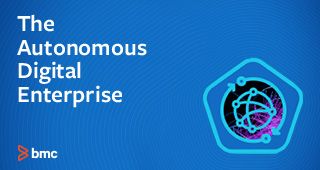We’re living in a time when data is generated in enormous numbers—by us, our devices, and the networks that transport it. Think of everyday interactions. Checked your e-mail? Data. Entered your PIN somewhere? Data. Drove your networked car somewhere? Data. Every revolution of a wind turbine? Data. Every phone call through a cell tower? Data. Then flip it to the business side—every time one of those actions was performed, a data center somewhere was collecting, collating, analyzing, and generating insights from it.
According to The 2020 Data Attack Surface Report from Arcserve, total global data storage is expected to exceed 200 zettabytes by 2025—with half of it stored in the cloud. And the number of devices in play is also massive, with the estimated 31 billion Internet of Things (IoT) devices currently in use expected to grow to 75 billion by that same year. The report also suggests that by the end of this decade, 7.5 billion people, or 90 percent of the world’s population over six years old, will be online and generating data.
It’s a data-driven world, and as such, the Data-Driven Business is sure to follow. That’s one of the tenets of the Autonomous Digital Enterprise, where manual effort is minimized to capitalize on human creativity, skills, and intellect across the enterprise and businesses learn to continuously examine customer and partner relationships to intelligently create new value.
With data such an integral part of the business—and a primary business driver—it’s vitally important to get a handle on and yield value from it now so we’re ready five and ten years out when it increases exponentially. So, how do we do that? What if we could apply agile engineering and DevOps best practices to the field of data management and rapidly turn new insights into actionable deliverables? We can with data operations (DataOps).
The current problem
In the present data arena, data and analytics transformation, whether it’s the older, traditional, siloed data or the more the advanced artificial intelligence-based analytics, is that it hasn’t delivered on its promised value. There can be a number of reasons for this, but one of the biggest reasons is that the insights generated by the data are not translated quickly enough. It takes so long to process and analyze it that when the insights are finally in hand, it’s often too late to act upon them.
Speed things up with DataOps
DataOps can help change that—streamlining processes so that data moves along the pipeline much more quickly, continuously yielding actionable insights and demonstrable value to the business. As more companies recognize that they are in fact a data-driven business, they must also realize they need to change their current, disconnected data processes to leverage it. By implementing DataOps processes and infrastructures, and creating teams that include dedicated data engineers and data scientists, organizations will not only be able to yield insights that drive current and future decision making in near real-time; they’ll also be better prepared to become an Autonomous Digital Enterprise.
Originally published on CIO.







